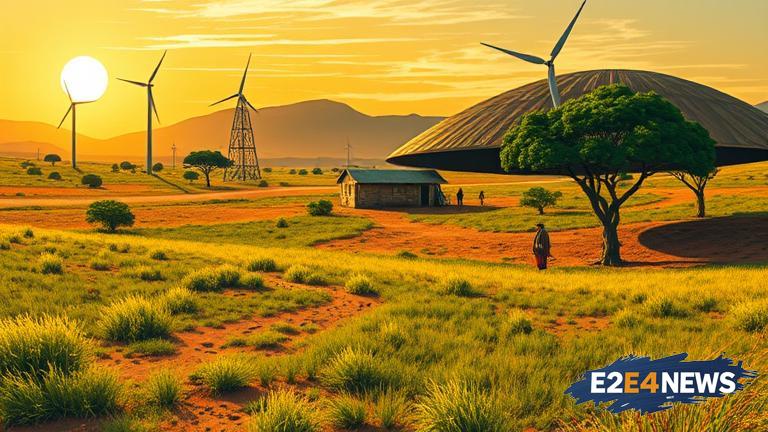The African continent is witnessing a significant shift towards renewable energy, driven by the need to address the pressing issues of energy access, energy security, and climate change. With a growing population and increasing economic activities, the demand for energy is on the rise, and renewable energy is emerging as a viable solution. Solar and wind power are the most prominent sources of renewable energy in Africa, with countries like South Africa, Egypt, and Morocco leading the way. The cost of renewable energy is decreasing, making it more competitive with fossil fuels, and governments are implementing policies to support the development of renewable energy projects. The African Union’s Agenda 2063 and the United Nations’ Sustainable Development Goals (SDGs) are also driving the adoption of renewable energy in Africa. Renewable energy can help reduce greenhouse gas emissions, improve air quality, and enhance energy security, which are critical for sustainable development. Moreover, renewable energy can create jobs, stimulate local economies, and improve the overall quality of life. However, the transition to renewable energy also poses challenges, including the need for significant investment, technology transfer, and capacity building. African countries are working together to address these challenges and leverage opportunities, such as the African Renewable Energy Initiative, which aims to develop at least 300 gigawatts of renewable energy capacity by 2030. The private sector is also playing a crucial role in the development of renewable energy in Africa, with companies investing in solar and wind farms, as well as energy storage and grid infrastructure. Furthermore, international cooperation and partnerships are essential for supporting the growth of renewable energy in Africa, with countries like China, the United States, and the European Union providing financial and technical assistance. The benefits of renewable energy are not limited to the environment; it can also have a positive impact on the economy and society. For instance, renewable energy can create new job opportunities, improve healthcare, and enhance food security. Additionally, renewable energy can help reduce energy poverty, which is a significant challenge in many African countries. Energy poverty refers to the lack of access to modern energy services, which can hinder economic development and social progress. Renewable energy can help address energy poverty by providing clean, reliable, and affordable energy to households, businesses, and industries. In conclusion, the renewable energy revolution in Africa is gaining momentum, driven by the need to address energy access, energy security, and climate change. With the support of governments, the private sector, and international partners, Africa can unlock its vast renewable energy potential and achieve a sustainable energy future. The transition to renewable energy will require significant investment, technology transfer, and capacity building, but the benefits will be substantial, including reduced greenhouse gas emissions, improved air quality, and enhanced energy security. As the African continent continues to grow and develop, renewable energy will play an increasingly important role in shaping its energy future. The adoption of renewable energy will also have a positive impact on the environment, economy, and society, creating new job opportunities, improving healthcare, and enhancing food security. Overall, the future of renewable energy in Africa looks promising, with many opportunities for growth, development, and cooperation.





